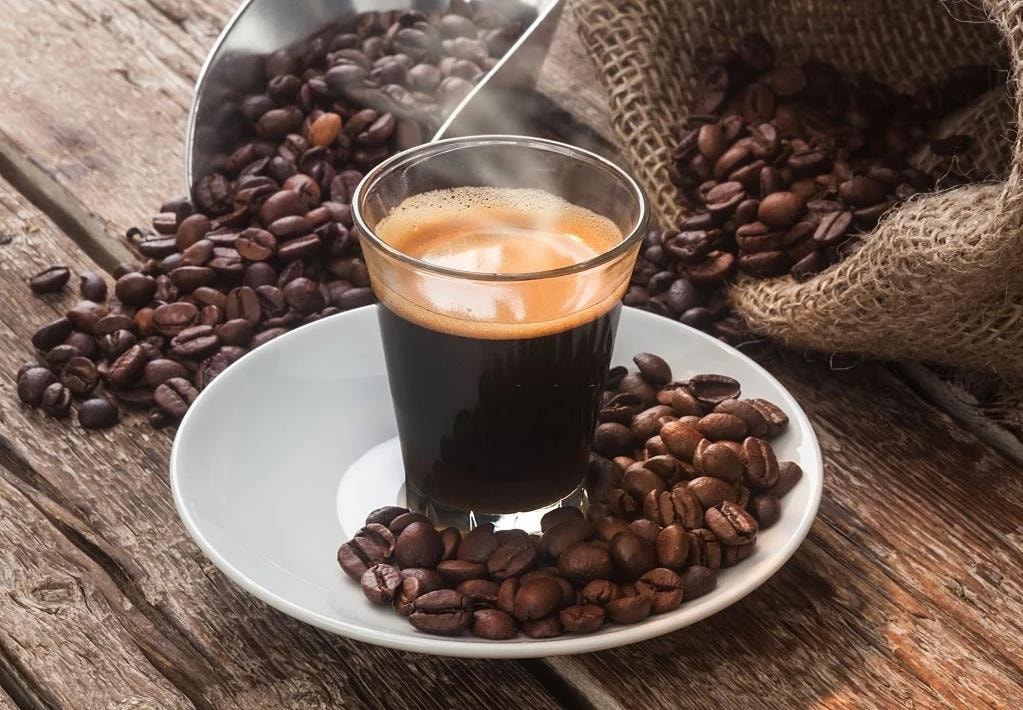Coffee price today March 24, 2025: Increase for the third consecutive week
Today's domestic coffee price, March 24, is at 132,900 - 134,000 VND/kg. Coffee prices have increased for the third consecutive week, increasing from 1,900 to 2,900 VND/kg. Arabica and robusta coffee prices are at record highs, even without taking inflation into account.
Domestic coffee prices today
Domestic coffee prices today, March 24, 2025, in the Central Highlands region increased slightly compared to yesterday, fluctuating between 132,900 - 134,000 VND/kg.
Accordingly, traders in Dak Nong province are purchasing coffee at the highest price of 134,000 VND/kg. No change compared to yesterday.
Coffee price in Dak Lak province is 133,900 VND/kg, unchanged from yesterday.
Similarly, coffee prices in Gia Lai province remained unchanged and were traded at VND133,900/kg.
In Lam Dong province, coffee prices remained unchanged at VND132,900/kg.

At the end of last week, coffee prices in the Central Highlands region increased for the third consecutive week from 1,900 to 2,900 VND/kg. Of which, coffee prices in Dak Nong province increased by 2,000 VND/kg.
In Dak Lak and Gia Lai provinces, coffee prices increased by 1,900 VND/kg and 2,100 VND/kg respectively. Coffee prices in Lam Dong increased the most by 2,900 VND/kg last week.
Domestic coffee prices in Vietnam have just reached 135,000 VND/kg for the second time, the highest level in history, since the trading session on March 5. This is an unprecedented milestone in the domestic coffee industry.
According to a trader in the coffee growing area, some farmers have taken advantage of this high price to sell to make a profit. However, many people who are not under financial pressure continue to hold on to their goods in the hope that the price will increase further.
However, the amount of coffee left in farmers' warehouses is not much. This makes the market supply even tighter before the new harvest season.
Another trader said companies are having trouble procuring coffee. Last year, some were able to import from Brazil to make up for the domestic shortage, but this year, supplies from Brazil have also become scarce.
In Indonesia, robusta coffee from Sumatra island was offered this week at a discount of $100-$110 to the April contract. This is a significant drop from last week when coffee was sold at a premium of $80, clearly reflecting the tight supply situation.
Another trader also confirmed that this week, coffee was offered at a discount of $100 as the shortage continued to persist.
World coffee prices today
On the London exchange, the price of Robusta coffee for May 2025 contract closed last week at $5,515/ton, up 2.2% compared to the previous week. The contract for July delivery also recorded an increase of 2.4%, reaching $5,504/ton.
On the New York Stock Exchange, the price of Arabica coffee for delivery in May 2025 increased sharply by 3.4% to 390.15 cents/pound. The contract for July 2025 increased even higher, by 3.9% to 385.3 cents/pound.
Climate change is contributing to volatile coffee prices, according to a new report from the Food and Agriculture Organization of the United Nations (FAO). The FAO calls for increased transparency and information sharing among parties in the global coffee supply chain.
Arabica and robusta coffee prices are at record highs, even without adjusting for inflation. Not long ago, the market saw coffee prices fall below $1 a pound, causing severe hardship for millions of small-scale coffee farmers around the world.
The FAO report pointed to a number of factors driving the price volatility, but highlighted a decline in production due to extreme weather as a key factor. Increased transportation costs were also said to have contributed to the recent surge in prices.
Although the FAO did not use the term “climate change,” it did detail the negative impact of extreme weather on coffee production in recent years. In addition, speculative activities, especially related to weather phenomena in major producing countries such as Brazil, Vietnam and Indonesia, are also partly responsible for the instability in global coffee prices.
